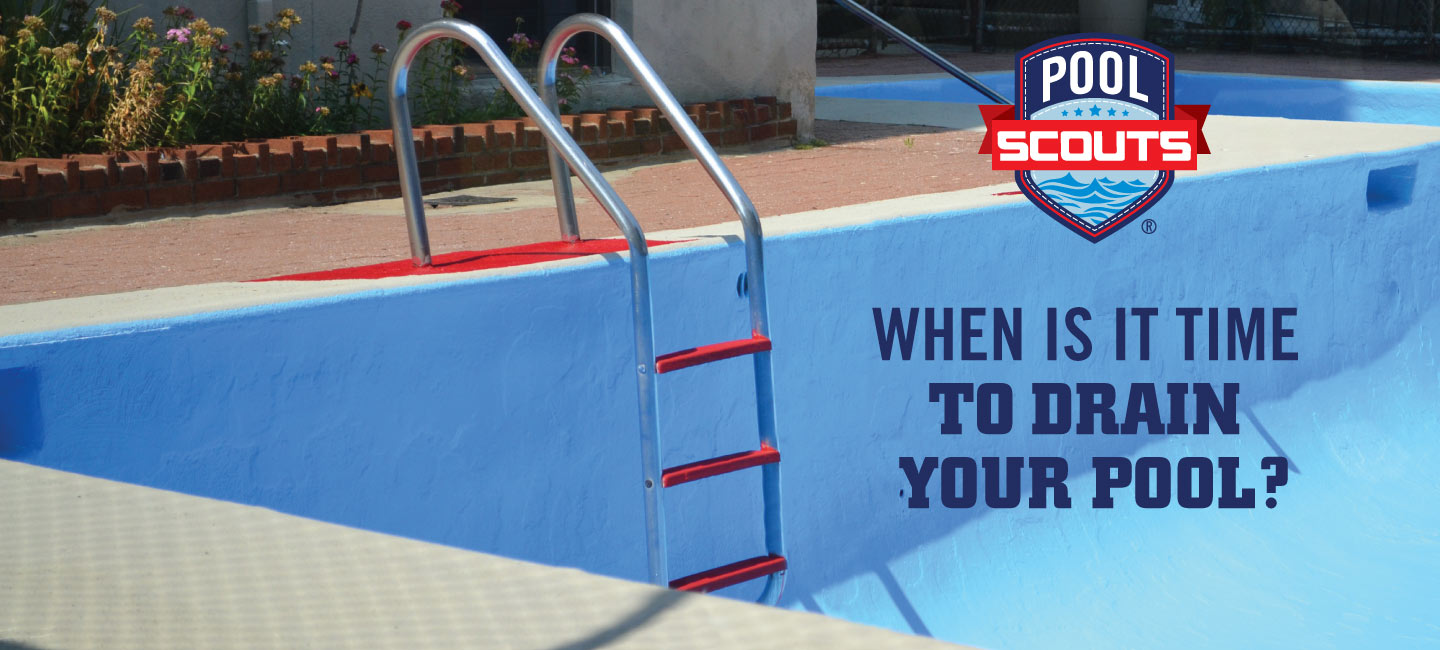
When is it Time to Drain Your Pool?
If you have a pool at home, you know the struggle of constantly wondering when draining your pool may be the best option. All pools should be well-maintained during swim season, but let’s face it—sometimes life gets in the way, and when we make our priority lists, pool maintenance just doesn’t make the cut. We get it.
If you haven’t followed the suggested upkeep, your pool may be green, full of dirt and debris or dead bugs, etc. This unsightly view can be overwhelming. You may even feel tempted to completely start over by draining your pool, but don’t act on impulse. Pool draining should be the very last resort.
When Should I Hold Off Draining My Pool?
The process of draining a pool can be very damaging. The area between the walls of an inground pool and the surrounding soil naturally fills with groundwater. When a pool is full, the pressure of the pool water balances the pressure of the groundwater against the pool walls and floor. When an inground pool is empty, the pressure of the surrounding groundwater is too heavy for the walls and floor of the pool to handle, which can result in serious damage. If the level of groundwater is high (which, in some cases, can be all the time. In other cases, this could be only after heavy rainfall), the pressure can cause the pool to heave out of the ground.
On average, a pool should be drained and refilled once every three to five years unless there is an emergency.
When Should I Drain My Pool?
The most common reason to drain a pool is when the level of total dissolved solids (TDS) in the pool is higher than the ability to keep the pool properly balanced with chemicals. Total dissolved solids consist of all the things that have dissolved in the pool water, i.e., pollen, metals, organic waste, chlorides, sulfates, algae residue, etc. Another common reason to drain a pool is when interior pool repairs are needed.
The Pool Butler suggests asking yourself the following questions if and when you’re conflicted about whether or not to drain your pool:
- Can you see the bottom of the shallowest area of the shallow end?
- Can you remove debris with a skimmer net or a vacuum?
- Can you commit to a daily pool routine consisting of shock, algaecide, and other chemicals used to balance the pH?
- Can you run your filter 24/7?
If you answer ‘no’ to any of the questions listed above, draining your pool may be necessary. In other words, your pool should only be drained and refilled when there is no other option.
Never take matters into your own hands because this can often cause more harm than good. Call Pool Scouts and let the professionals handle your pool predicaments. We are here to answer all of your questions and fulfill your pool needs so that you can enjoy swim season hassle-free! Perfect Pools, Scout’s Honor.
Swim happy and float on!
